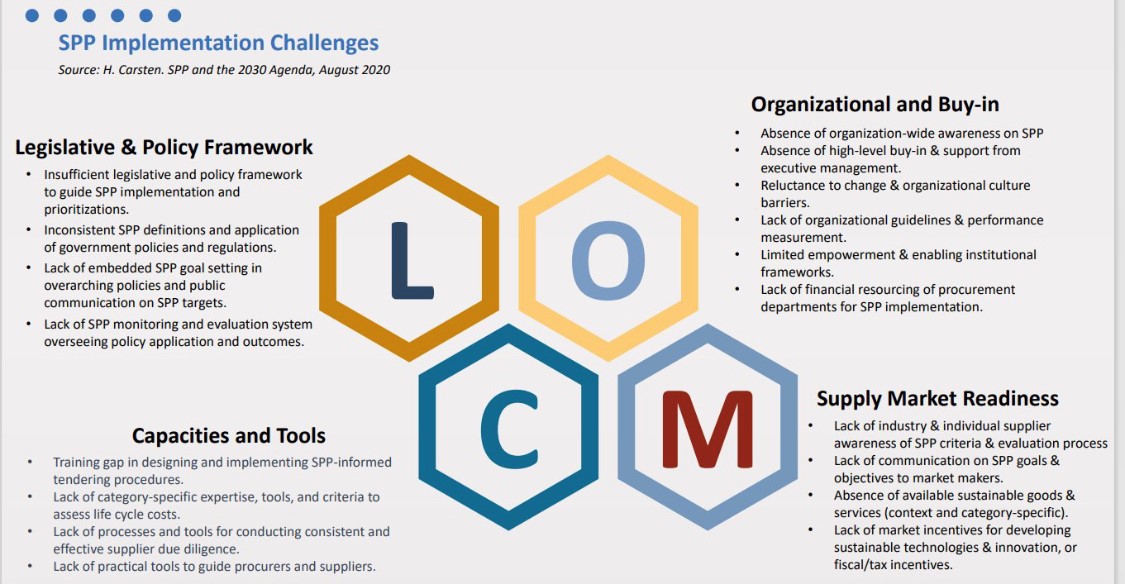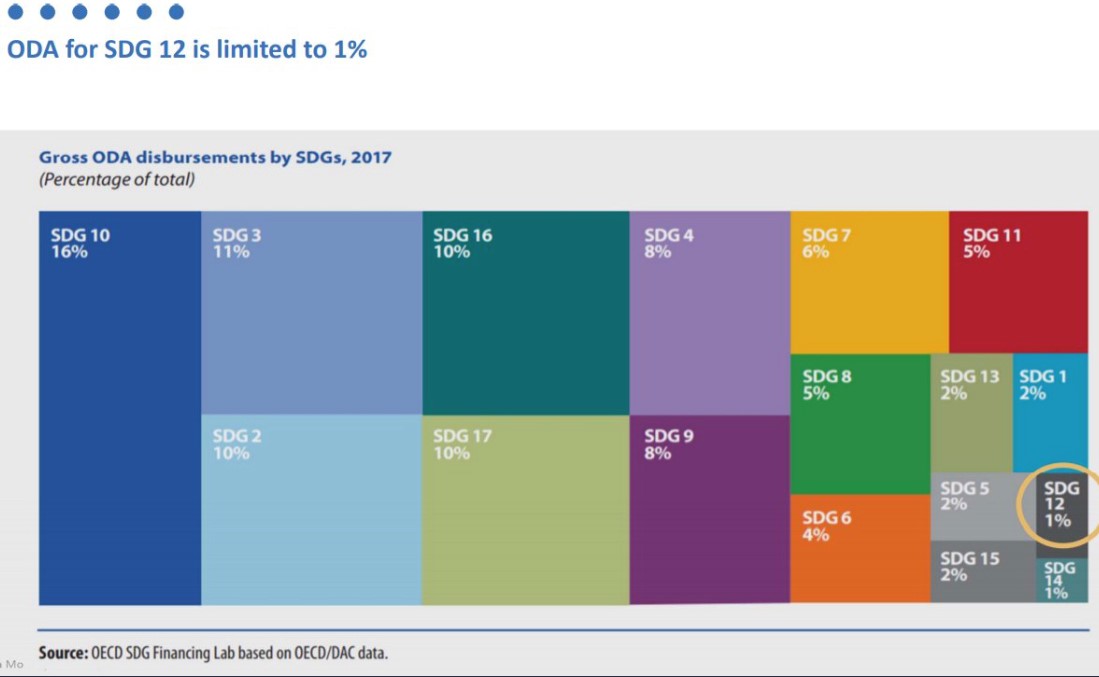
It is the final decade to implement 2030 #SustainableDevelopment Goals (#SDGs). Most governments are failing their commitment towards promoting #Sustainable #PublicProcurement: an immense opportunity loss for leveraging the purchasing power of the public sector towards SDG agenda.
We have long thought that #sustainable #public #procurement (#SPP) can be truly “fit for purpose”. The question remains largely unanswered. Were we optimistic to think that "we can wake the trillion-dollar giant?" As Carsten Hansen put it in his latest report (October 2020).
Will this awakening happen by 2030? What are the real barriers? What kind of enabling conditions do we need to create? How can we advance research? mobilize incentives for cultural change and buy-in? reinforce practitioner level capacity? acknowledge and integrate the impact of SPP cost factor in budgets and decision-making processes?
#SDGGoal12 specifically, provides a wide platform for linking #PublicProcurement practices with #SustainableDevelopment outcomes, aligning public spending with national development objectives of governments and the wider international community.
Can #publicprocurement be better positioned as a strategic policy tool to drive and create markets to address societal needs? To what extent this is doable in low-and middle-income countries suffering from austerity, and where budget constraints and debt burden are overarching priorities?
Undeniably, the cost factor in low-income and middle-income countries is amplified. The price of SPP is considered an extra burden and public procurement officials often prioritize short-term price savings over sustainable outcomes due to budgetary constraints.
A most interesting conceptual framework was developed by @carstenhansen. It revolves around four dimensions, including the legal framework, the implementing public organization, the practitioner level, and the readiness of the national supply market.
@carstenhansen points to knowledge and capacity gaps as major challenges. Skills at all levels are enablers for SPP: policymakers, customers, suppliers, contractors, as well as procurers are all concerned. The skills of influencing, negotiating, communication, and analysis need to be fostered.
The UN system @SustDev & international partners are called upon to continue mobilizing needed resources through TA and funding, The ODA allocated for SGG12 is very low and insufficient (1% og Gross ODA disbursement, OECD, 207) to support Governments (especially in developing countries) pursuing PP reforms and addressing the multi-dimensional challenges of SPP implementation.
Summary remarks delivered at the virtual expert group meeting on institutions and governance for accelerating #SPP., 24 November 2020. UN CEPA Working Group on Sustainable Public Procurement



By Lamia Moubayed Bissat, member of the Committee of Experts on Public Administration
 مرحباً بكم في الأمم المتحدة
مرحباً بكم في الأمم المتحدة 